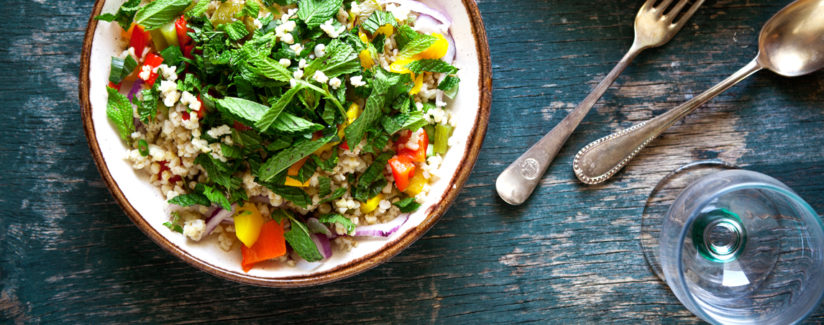
What is the Alkaline Diet?
With celebrities like Kelly Ripa, Kate Hudson and Jennifer Aniston boasting about how an alkaline cleanse changed their lives, it may have you wondering… what is the alkaline diet? And what exactly does it do to your body?
The alkaline diet is based on the idea that what you eat affects the pH level (the acidity or alkalinity) of your body. The diet eliminates foods that have high acid and emphasizes foods that are high in alkaline.
We sat down with Dr. Susan Whiting, distinguished professor of nutrition at the University of Saskatchewan, to get to the bottom of the alkaline diet.
So, what exactly is alkaline?
Dr. Whiting: “We define it based on positive hydrogen ions. Acid is an excess and alkaline means there’s much less. In the middle is neutral. While you might think neutral must be best, there are different types of chemical reactions and sometimes you need acidic. Sometimes you need alkaline. For example, you can’t digest protein without the stomach being acid. But the intestine is alkaline.”
Ok, if this diet focuses on balancing the body’s pH, what is pH and how does that work?
Dr. Whiting: “This is a scale to measure acid-base balance. It is based on the concentration of hydrogen ions in a log scale (but to complicate things it is a negative log scale).”
PH, which is short for potential hydrogen, is the measure of hydrogen ions in a solution. This is measured on a scale of one to 14, where seven is neutral. The higher the number, the more alkaline, or basic, the solution is. And in contrast, the lower the number, the more acidic it is.
When it comes to our bodies, the National Center for Biotechnology Information (NCBI) states that our pH varies from one area to another. For example, our stomachs have both acidic and basic parts to it. Our stomach has high acid to digest food, and in contrast, it has a liner that is high in alkaline to prevent injury to organ membranes. This makes trying to regulate the body’s pH to reach a neutral state nearly impossible.
Our blood typically has a pH around 7.4, which means that our blood is slightly more alkaline.
Can you tell us when, where and how this diet began?
Dr. Whiting: “It actually has its roots in the paleo diet. Because that diet is excessive in meat it was acknowledged that a lot of vegetables should also be consumed as would occur with a hunter gatherer life.”
What does the alkaline diet entail then?
Whiting: “It should focus on a lot of fruit and vegetables… Some people focus on reducing animal protein, which is true, but that distorts the real source of alkalinity. Eat more fruit and vegetables and don’t go overboard on animal protein.”
Is it a safe diet to partake in? What would you recommend instead if not?
Whiting: “It’s a reminder to eat fruit and vegetables. The safe version is the DASH diet. And it has proven cardiovascular benefits.There may also be a delay of bone loss leading to osteoporosis.”
What are the benefits of the alkaline diet?
Whiting: “Only if one suffers from excess acid production would there be a benefit. For example, I saw a journal article saying it would benefit those with chronic kidney disease.”
Exactly what can and can’t a person eat on the alkaline diet?
Whiting: “The alkaline diet is opposite to ketogenic diet that forbids fruit and limits vegetables but encourages protein. Any diet that encourages excessive protein and restricts fruit and vegetables is not alkaline.”
“Some people think all they have to do is ingest sodium bicarbonate which is baking soda. Yes, it is alkaline. Just add it to vinegar and watch it fizz…. But the excess sodium is not good. One could take potassium bicarbonate, but long-term risks are unknown.”
Wondering what you can eat on the diet? We’ve provided a list of alkaline foods.
- Alkaline water
- Tofu
- Sprouts
- Goat or almond milk
- Herbal tea
- Gluten/yeast free breads and wraps
- Sprouted breads and wraps
- Grasses including wheatgrass, barley, kamut, shave and oat
- Nuts including coconut and almond
- Various seeds including flax, sunflower, sesame and pumpkin
- Grains including amaranth, buckwheat, chia/salba, kamut, millet, quinoa and lentils
- Beans including lima, mung, pinto, red, soy and white
- Vegetables including asparagus, broccoli, green beans, spinach, kale, sweet potatoes, eggplant, garlic, onion, celery, cucumber, lettuce, peas, pumpkin, squash and radishes
- Fruits including avocado, tomatoes, lemon, lime, grapefruit, fresh coconut and pomegranate
The alkaline diet serves as a good reminder of how important it is to keep eating those fruits and vegetables.


























